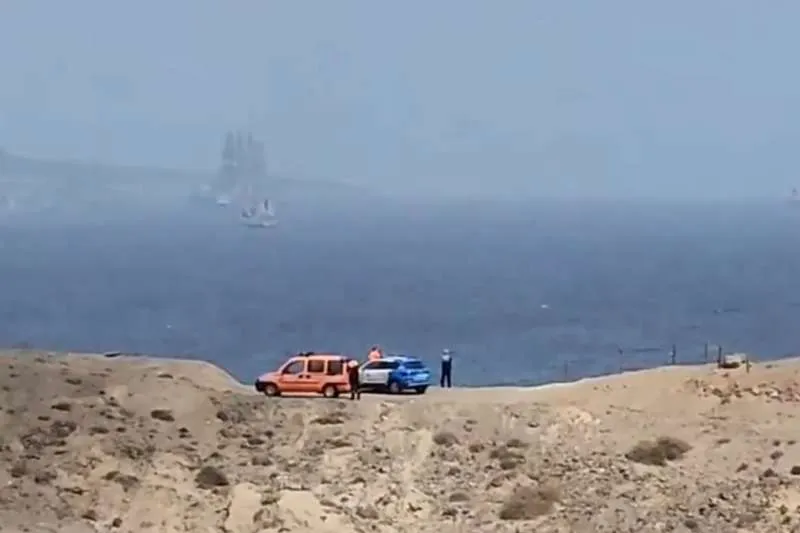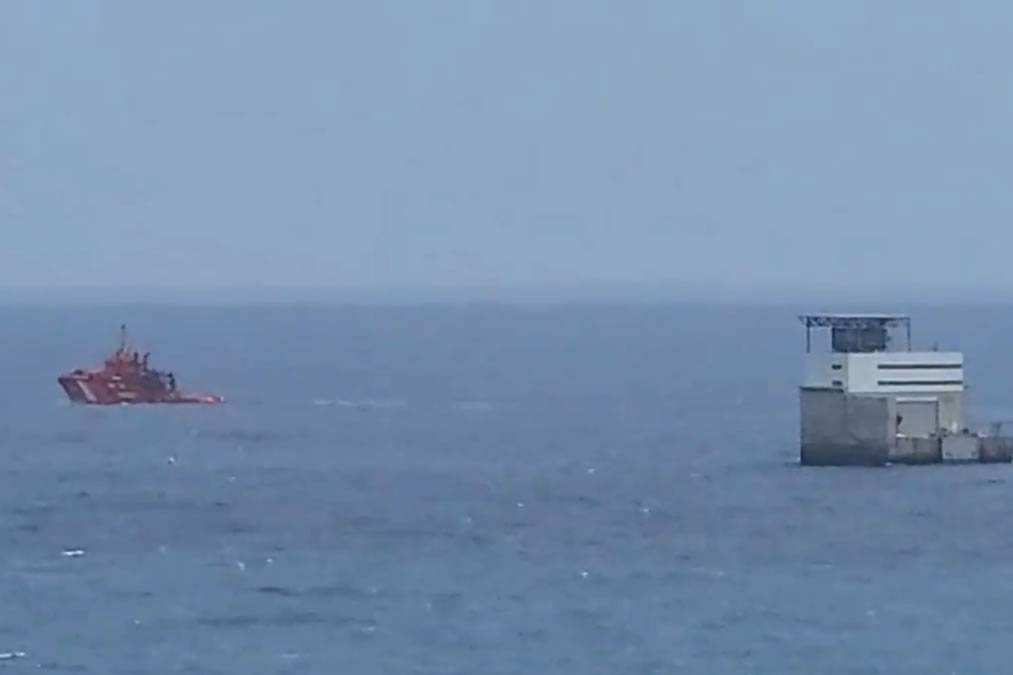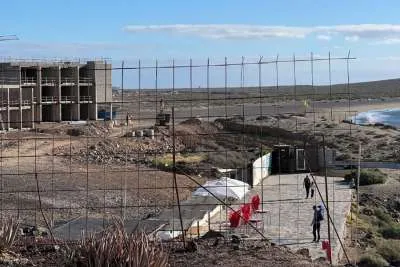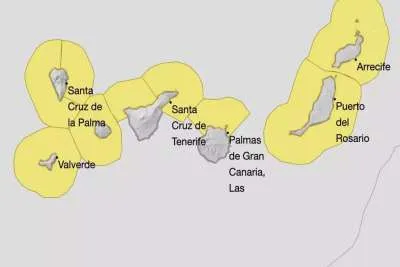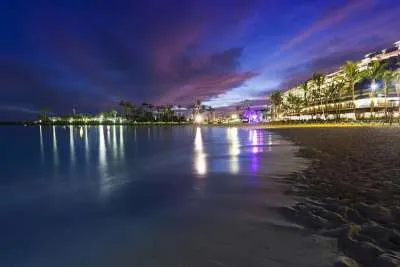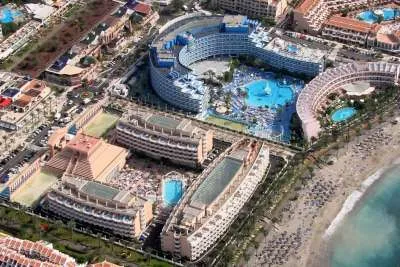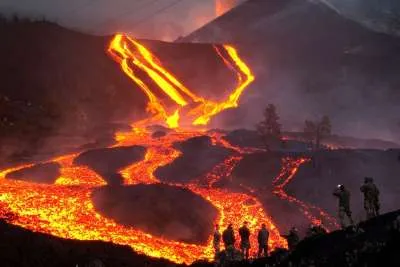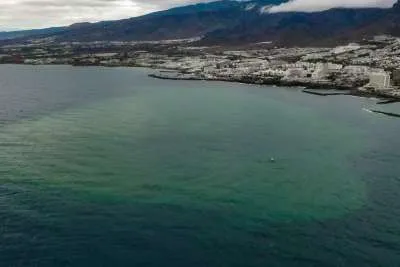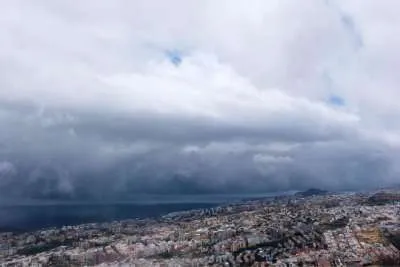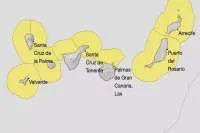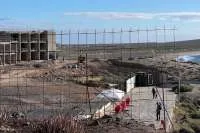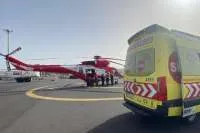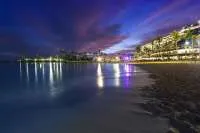Emergency raised to Level 2 in Gran Canaria due to fuel spill
- 06-09-2024
- Gran Canaria
- Canarian Weekly
- Photo Credit: 112 Canarias
A fuel spill extending over two kilometres has prompted authorities to close beaches in Gran Canaria, with emergency services struggling to control the situation due to poor weather and sea conditions.
The incident occurred late Wednesday night during a fuel transfer operation between a barge and a ship at the Virgen del Pino dock in the Port of La Luz in Las Palmas de Gran Canaria. Despite initial containment efforts, part of the fuel escaped the port and began drifting toward the coastline.
Escalating Response
The Port Authority of Las Palmas swiftly activated its Maritime Interior Plan (PIM), deploying containment booms both around the ship and further out as a precaution due to limited visibility because it was dark.
Beatriz Calzada, president of the Port Authority, confirmed that while the barriers functioned within the port, some fuel managed to escape into the open sea. Consequently, the Maritime Captaincy activated the National Maritime Plan to coordinate offshore response efforts.
This morning, the city of Las Palmas de Gran Canaria updated its Municipal Emergency Plan (PEMULPA) and joined the containment efforts. Meanwhile, the Canary Islands' General Directorate of Emergencies elevated the Territorial Civil Protection Plan (PLATECA) to alert Level 2, signifying a higher risk and mobilisation of additional resources.
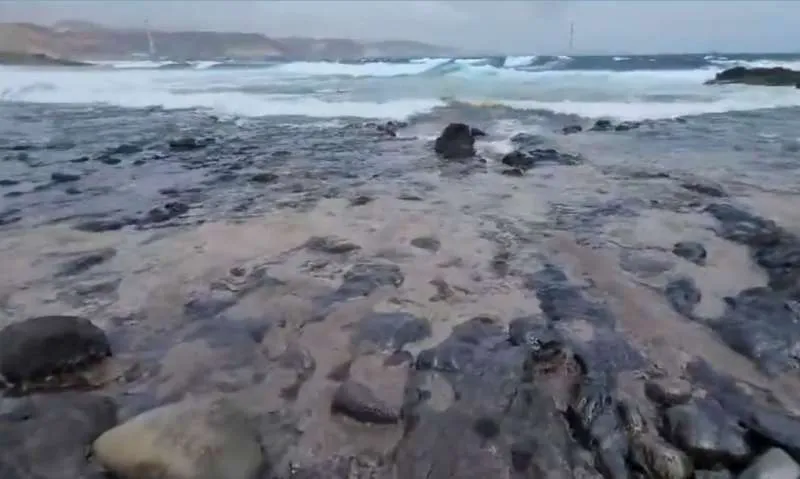
Affected Areas and Risks
The fuel spill, measuring approximately two kilometres in length and 400 metres in width, has impacted coastal areas of both Las Palmas de Gran Canaria and the nearby municipality of Telde. The beach at La Restinga in Telde has been temporarily closed to the public due to contamination.
The mayor of the municipality, Juan Antonio Peña, confirmed this morning (Frida) that around 70 personnel have been working to clean up and restore the coastline, for the moment the spill does not seem to have spread.
Four groups will also start cleaning the beaches of Bocabarranco and La Restinga, as they are the most affected areas, taking advantage of the low tide at around 9.30am. The staff has been armed with PPE material, which includes overalls, gloves, masks and rubber boots, as well as machines to clean the beaches and remove waste. Specifically, it will be done with absorbent material and pressurised water.
Authorities are hopeful that the fuel will naturally dissipate with the help of mechanical agitation and ocean currents. However, maritime rescue teams and local agencies remain on high alert, working to contain the pollution and minimise its impact on the coastline.
Cleanup operations will continue until the spill is fully controlled and the emergency alert is lifted.
